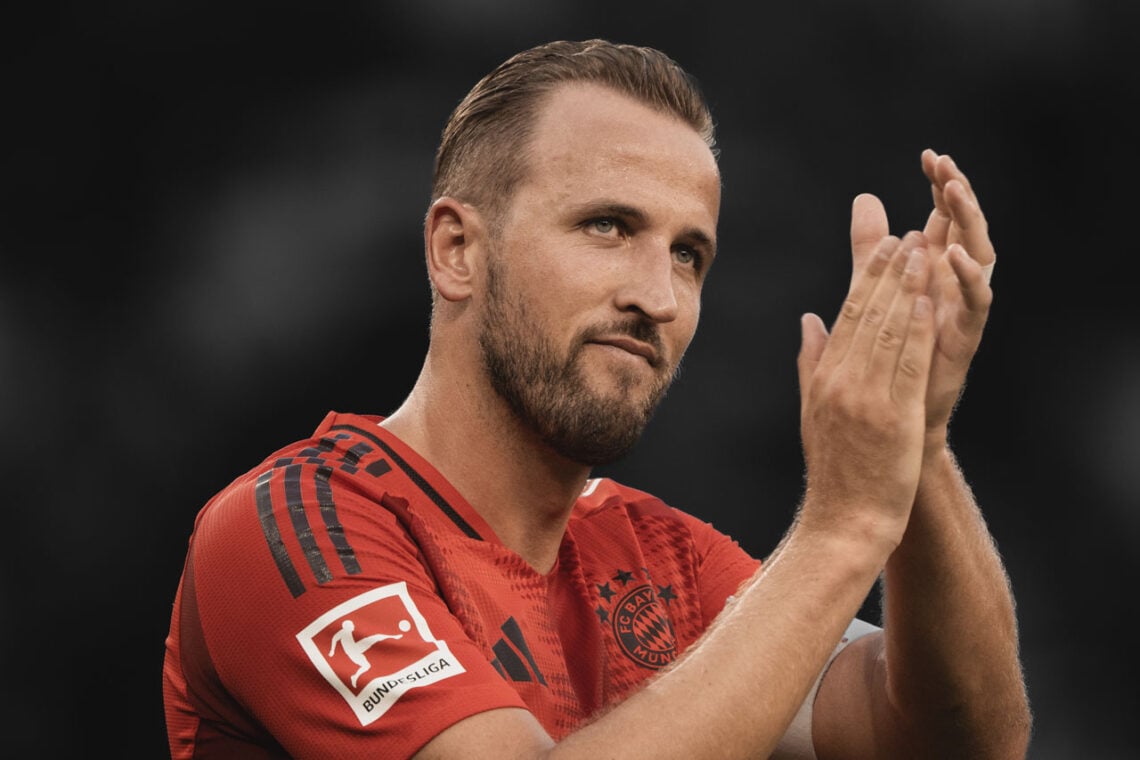Football finance expert, Adam Williams, has analysed the numbers to assess if it would make sense for Tottenham Hotspur to sign a 33-year-old Harry Kane next summer.
It has been widely reported that Tottenham will activate their first refusal option to buy Kane next summer if the striker signals an intention to return to N17.
This is not just paper talk any longer, as Thomas Frank himself has confirmed that he would love to have Kane at Spurs if the centre-forward is keen on returning to his former stomping ground.
Reports in England continue to suggest that Kane wants to return to the Premier League after the World Cup next summer, with a number of clubs now eyeing Tottenham’s record goalscorer.

Do the finances of a Harry Kane deal make sense for Tottenham?
It is now public knowledge that Kane can leave Bayern for £57m next summer, due to a clause in his contract.
The striker is not getting any younger, but Adam Williams believes that the deal would make financial sense for the North London club as the England captain is now showing signs of physical decline.
Williams told TBR Football about Tottenham Hotspur’s interest in Kane: “£57m for a 33-year-old looks like an extortionate sum on first reading, but elite-level footballers are playing longer these days. Harry Kane looks after himself.
“He’s one of the ultimate pros, and I’m sure he’s invested a lot – both financially and psychologically – in keeping himself in the best possible condition to keep his career going as long as possible.
“He may rely on his physicality less than other players of his vintage, which probably means he has more left to give even if his body starts to slow down. At 33, he’s still the one, if not the best striker in the world.
“I’m no expert on tactics or anything like that, so I can’t say whether or not he would fit in with what the football department are planning at Spurs, but commercially, a return to Tottenham for Kane would clearly be a huge success. He’s going to sell a lot of shirts, attract a lot of sponsors and so on.
“The transfer fee also probably wouldn’t be a problem – just look at what they spent this summer. One thing they will be conscious of is transfer debt, however, which is very, very high at Spurs. It was £337m at the last count, which was the second highest in the league behind Chelsea. Sometimes a release clause can specify that it has to be paid in one go, but there are ways around that. You can go through a transfer creditor, for example.
“Instalments are a perfectly logical way to pay for transfers, but if your debt keeps increasing faster than revenue, that’s not really sustainable in the long term. That is not something that would inherently stop them from signing a player like Kane, though, of course, he’s not going to have any resale value at this stage in his career.”
Would Spurs be able to afford Kane’s wages?
The one potential sticking point for the Lilywhites is that the centre-forward is currently on £400,000 per week at Bayern, which is double what Tottenham’s highest earner, Cristian Romero, earns.
However, Williams believes that there are ways Spurs can get around that by offering the forward an incentivised contract, insisting that the Lilywhites can afford to match the striker’s current salary.
The finance expert added about Kane: “He is on £400,000 per week at Bayern, but I imagine it might be more of an incentivised contract if he came back to North London, although clearly with a very high basic wage too, of course. That would insulate Spurs a little bit.
“Germany also has slightly higher tax in the top bracket than the UK, so there might be a little bit of room for manoeuvre on salary there too. Then again, there are a million variables when we start to get into the discussions of the relative financial benefits of each country.
“I have no doubt that if Spurs wanted to make a deal happen, they could easily afford £400,000 per week, it would be a question of whether it would be the best use of their money. ENIC don’t look like they’re putting any more money into the club at this stage, so they’ll want to get the best return on every pound they spend. They’ll look at it through a cost-benefit lens, not a sentimental one.”
